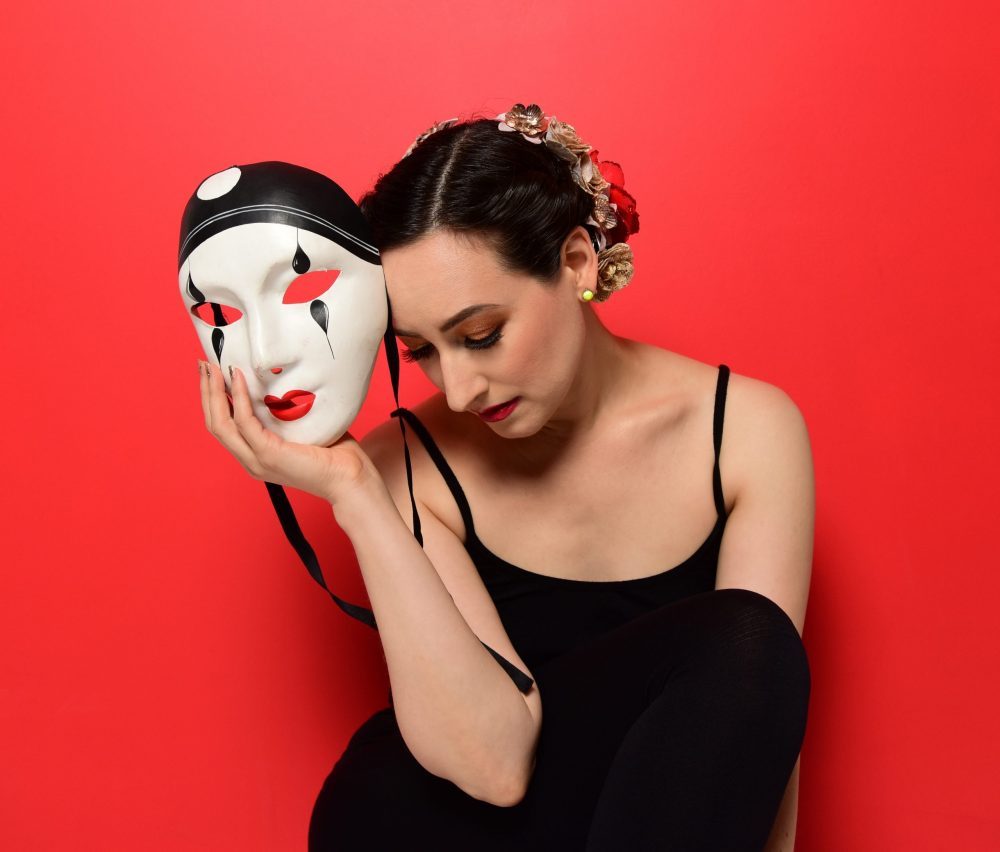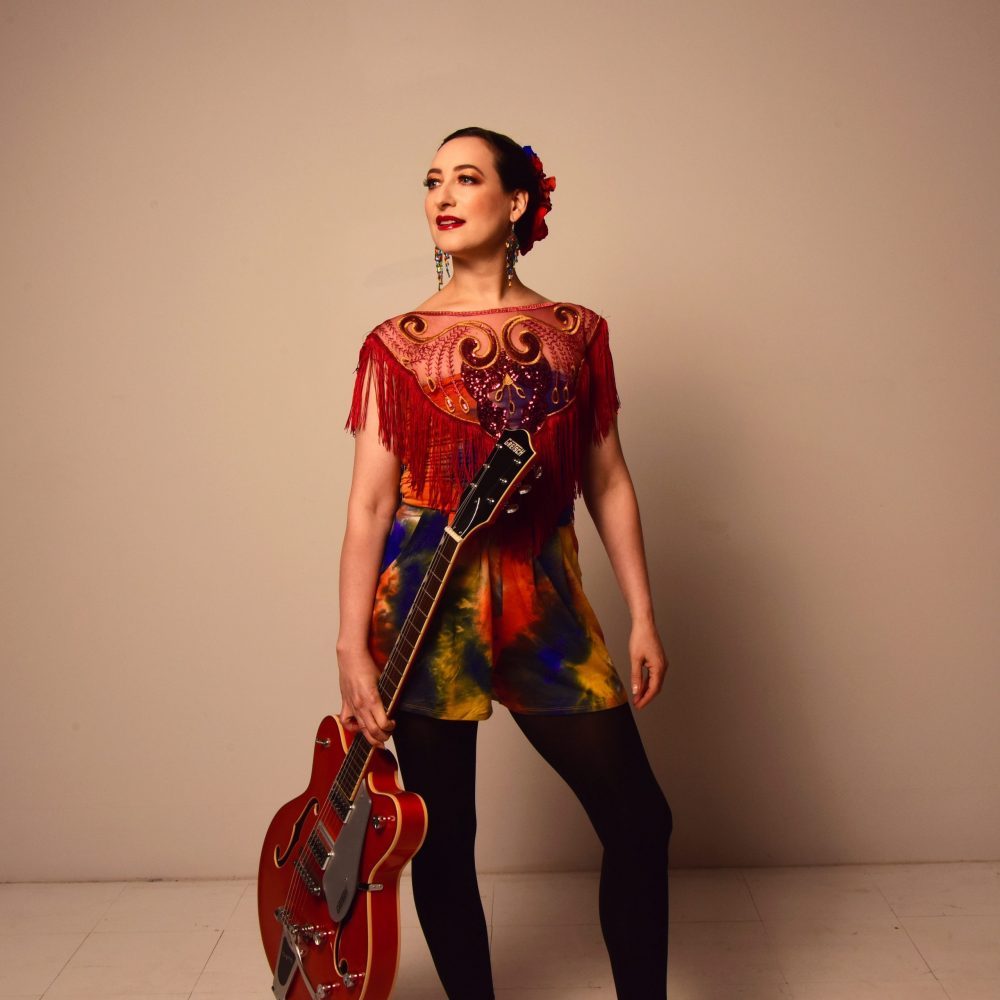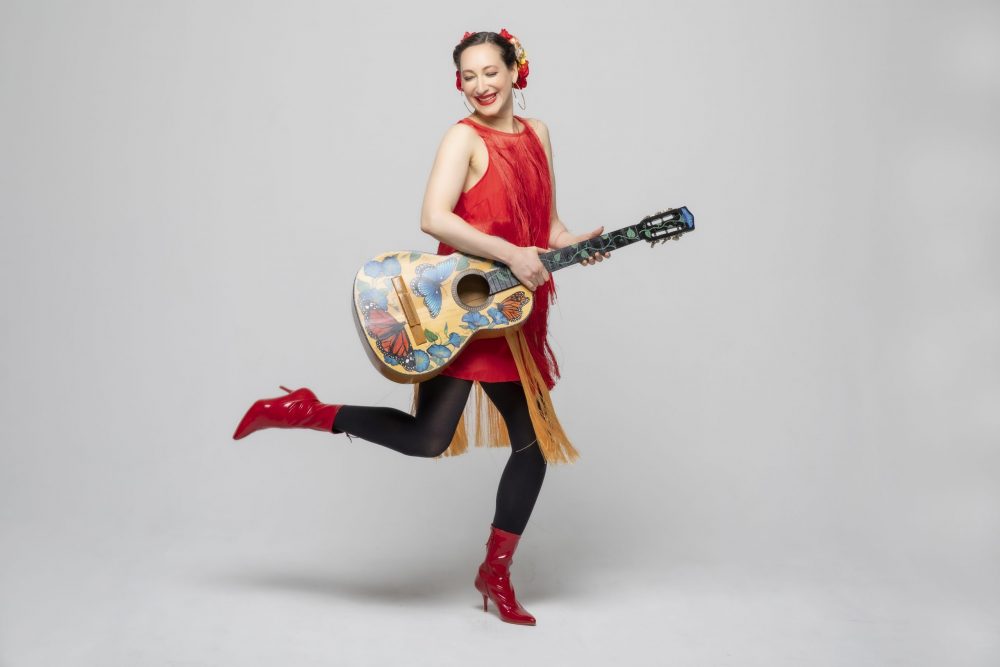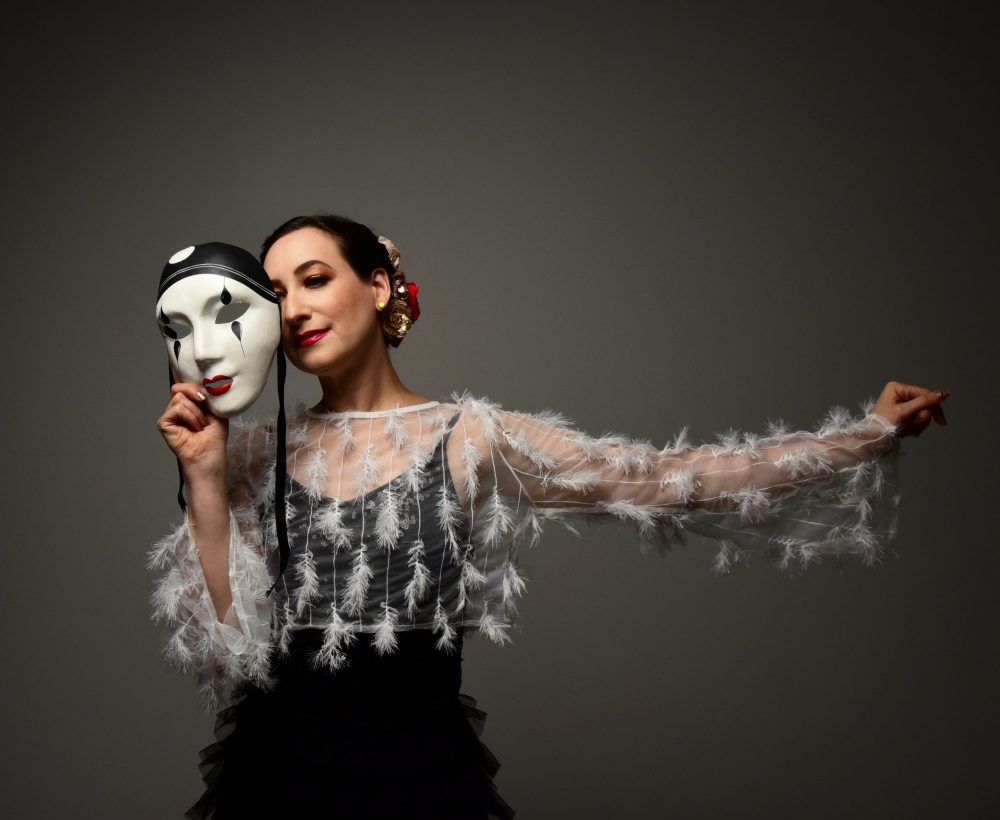Rachael Sage’s 14th album “Character” is a testament to her illustrious musical career and to her character.
I’m in a cafe on the Lower East Side of Manhattan drinking excellent peppermint tea with a singer-songwriter I’ve admired for the exact length of time I’ve been editor of this publication.
In my pantheon of queer female musicians, Rachael Sage is a firm favorite.
It seems that the indie folk-rock-pop musician puts out an album every 18 months or so, which is a remarkable achievement given that each time it’s a quality offering: poetic, melodic, intelligent, spiritual, and often with a sense of social justice. Haunted By You, Choreographic, and Myopia are, for me, contemporary classics.
Her Dance Competition Collection, Vol. 1 is an excellent “best of” compilation that, if you’re new to Sage’s work, is the place to start.
The main reason I am sipping tea on a winter’s evening with Sage is that her run of productivity recently hit a roadblock as she faced a cancer diagnosis, treatment, and the hard path to wellness.
So we share tea, rather than the usual interview fuel of coffee or wine. I learned of Sage’s recent recovery from cancer at about the same time she announced her new album Character. So after a decade of hail-fellow-well-met in the LGBT media ether it was time to sit down with her and catch up properly.
After all, in addition to her achievements as a musician she is also owner of the record label, MPress Records. How did she, while rebounding from cancer, put out this extraordinary new album?

Character is quite an achievement. Sage’s voice, delicately expressive with that distinctive vibrato, has never sounded better. Standout tracks include the bright, uptempo opener “Blue Sky Days”; the heartfelt, humble “Bravery’s On Fire”; the lovely string-quartet cover of “Both Hands”; the exotic, serpentine “Cave”; the edgy, political title track; and the stunning “Be the Same” in which she observes, “I never mean to come apart / Maybe that’s just how God makes art.”
A compendium of musical marvels, Character is also classic Sage: rich lyrics, diverse instrumentation, divine arrangements—but with some new insights brought on by a very difficult year. Co-produced with Grammy® winner Andy Zulla (Kelly Clarkson, Rod Stewart), the 12 songs were recorded while recovering from her treatment for endometrial cancer after discovering it during a routine exam.
“For whatever reason something marched me into a Planned Parenthood after my last tour,” Sage tells me. She now credits the embattled nonprofit reproductive healthcare organization with saving her life.
She had never heard of endometrial cancer—a type of uterine cancer—even though 60,000 woman a year in the US are diagnosed with it (530,000 women a year are affected by uterine cancer worldwide). But here was the diagnosis and fresh off a successful tour with musician Howard Jones, Sage found her world turned upside-down.
With the support of friends, family, and staff at Massachusetts General and Memorial Sloan-Kettering hospitals, Sage began treatment—and a process of discovery that would lead to this album.
It was during this time that she was forced to examine the meaning of the word “character.” Sage is an award-winning singer-songwriter but she is also a Shakespearean trained actor.
She found that “character” was about more than becoming someone else; it was also about becoming who she really was.
The beating heart of the album is “Bravery’s On Fire,” a stirring disclosure of vulnerability.
“It was the first song that I wrote during my recovery,” says Sage. “A lot of people have asked if I was musically expressive during that time and the answer is definitively no. I had zero energy. That was a prolonged sensation that I had never experienced in my life. It was very humbling, very insightful into the ways of those who experience chronic illness. I was fortunate that it came to an end but that was the first song I wrote after my last treatment.”
The song is an admission of human frailty and offers “a real window into what it feels like to just not be able to show up for anyone else but yourself in a moment of profound self-care.” The track will resonate especially with women who act as care-givers for others. Looking back on her experience, Sage is able to be philosophical.
“I believe that everything is for a reason. There’s always a silver lining, there’s always a lesson that you’re supposed to learn.” For Sage, it is to guard her health, and to protect her artistic gift.
“In a lot of ways I was just going with the flow of where my artistry took me, where my adventures took me, but now I have more of an emotional road map. I know what my boundaries are, I know what I need to feel healthy mentally and physically and that really is a huge gift that also complements my goals as an artist,” she says.
And Sage’s goals—and her gifts—are considerable. She recently signed the Austin-based, award-winning singer-songwriter Grace Pettis to the MPress label.
And if I know Sage, there are more albums of her own to come. With 14 albums and counting, Sage is one of the most prolific multi-instrumentalist female singer-songwriters I know of.

And far from being a creator of simply commercial love songs, or even of confessional ballads, she’s a storyteller—whether she’s telling her own story or the stories of other people.
Sage approaches the act of songwriting as an artist—poet, painter, playwright—with the anticipation of performing the song live before an audience, which is one of her favorite things to do. As I write this she is preparing for the second leg of her international tour.
Her songwriting begins with the impulse of “really just wanting to communicate and wanting to connect.”
Deeply private, and a self-described “New York Jewess,” Sage is also a warm and generous person and performer. She’s a sensitive soul and a natural-born performer; while she could’ve kept her experience with cancer hidden in the wings she decided to be frank, for the sake of herself and for others.
And so this nice Jewish girl is sharing “a kind of cleansing, a Baptism into a purity that I felt could only be distilled after having come through the other side of something very difficult.
There is a feeling of accomplishment and also of gratitude that sort of converges and teaches you a lot about who you are when you go through something difficult.”
Hence, the title track “Character,” which she describes as a subliminally political song (and it has a great lyric “hashtag I’m with her”). Because Sage is wise enough to know that her most challenging year is not isolated to her alone; what she has been through parallels the recent experiences of many of us.
“It seemed like a really good metaphor for how everyone is processing all of the challenges socio-politically right now. And so I really genuinely was asking those questions of myself—what does it mean to have character—and hopefully it will encourage other people to do the same.”
When it comes to other LGBTQ singer-songwriters who span the realms of the personal and the political, Ani DiFranco comes to mind, and the other true joy on this album is Sage’s cover of the classic Ani song, “Both Hands.”
“I’ve always loved that song,” reveals Sage. “I made a playlist for myself when I was in treatment, specifically while I was getting my chemo, because music is the thing that will distract you virtually from anything else, and among the playlist was one with women’s music—of course—and it was on my ‘Be Brave, Awesome Folk’ playlist.
I played it over and over and over. There were many other artists on that list but that particular song found its way back to my fingers right away after I was well enough to pick up an instrument again. The music is uplifting. I would say it’s bittersweet.”
.jpg)
Sage, who identifies as bisexual, has a long and formative history of performing with other women musicians, such as Ani DiFranco, harking back to the seminal days of Lilith Fair, the traveling women’s music festival founded by Sarah McLachlan.
“I hope my audience continues to expand and consist of diverse people from the LGBTQ+ community…I feel like I’ve been humbled to hear more and more of the evolving language in our community. I’m always learning about who I even am based on the observations of others. Labels are labels. There are words to describe who we are and they’re so helpful and worthy of our respect when we choose them ourselves, for ourselves. So I’m always listening to and learning from everyone in our community to make sure I’m being respectful, mindful, and describing everyone around me the way they want.”
If you want a quick guide to Sage’s “most lesbian songs,” which, shamelessly, I asked her for, she recommends “Cyanide and Cinnamon” from her album Painting of a Painting. Others are “Loreena,” “Wishbone”—“I actually wrote that for a lesbian wedding that I played for two lovely ladies in Massachusetts who asked me to write a song for them.

It was very moving. I performed it at their wedding, too. I guess that was my rabbi moment,” she laughs. “‘Delancey Street’ was a song that I wrote about a woman that I loved very much, but it’s a sad song, as some of the best of my ballads are,” she reveals. “Olivia” was written for the character Olivia Benson in Law and Order, a lesbian favorite.
I have many Rachael Sage favorites and some of them have been mentioned above. But perhaps the song that best embodies this singer-songwriter’s message at this moment in time is, ironically, a song she wrote right before all this came to pass. In “Alive,” from the 2018 album Myopia, Sage sings in the chorus:
“It’s good to be alive, to fall and then revive / Ohhh it’s good to be alive.”
And that it is.
%20(2).jpg)
Rachael Sage is currently on tour with Howard Jones. For information and tickets go to rachaelsage.com.
